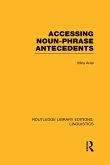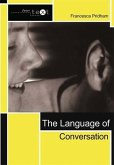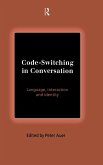High Quality Content by WIKIPEDIA articles! In the context of linguistic morphology, an uninflected word is a word that has no morphological markers (inflection) such as affixes, ablaut, consonant gradation, etc., indicating declension or conjugation. If a word has an uninflected form, this is usually the form used as the lemma for the word. In English and many other languages, uninflected words include prepositions, interjections and conjunctions, often called invariable words. These cannot be inflected under any circumstances (unless they are used as different parts of speech, as in "ifs and buts", or "humming and hawing"). Only words which cannot be inflected at all should be called "uninflected" or "invariable", but in common usage these terms can be extended to words that appear in their basic form. For example, English nouns are said to be uninflected in the singular, while they show inflection in the plural (represented by the affix -s/-es).
Bitte wählen Sie Ihr Anliegen aus.
Rechnungen
Retourenschein anfordern
Bestellstatus
Storno








